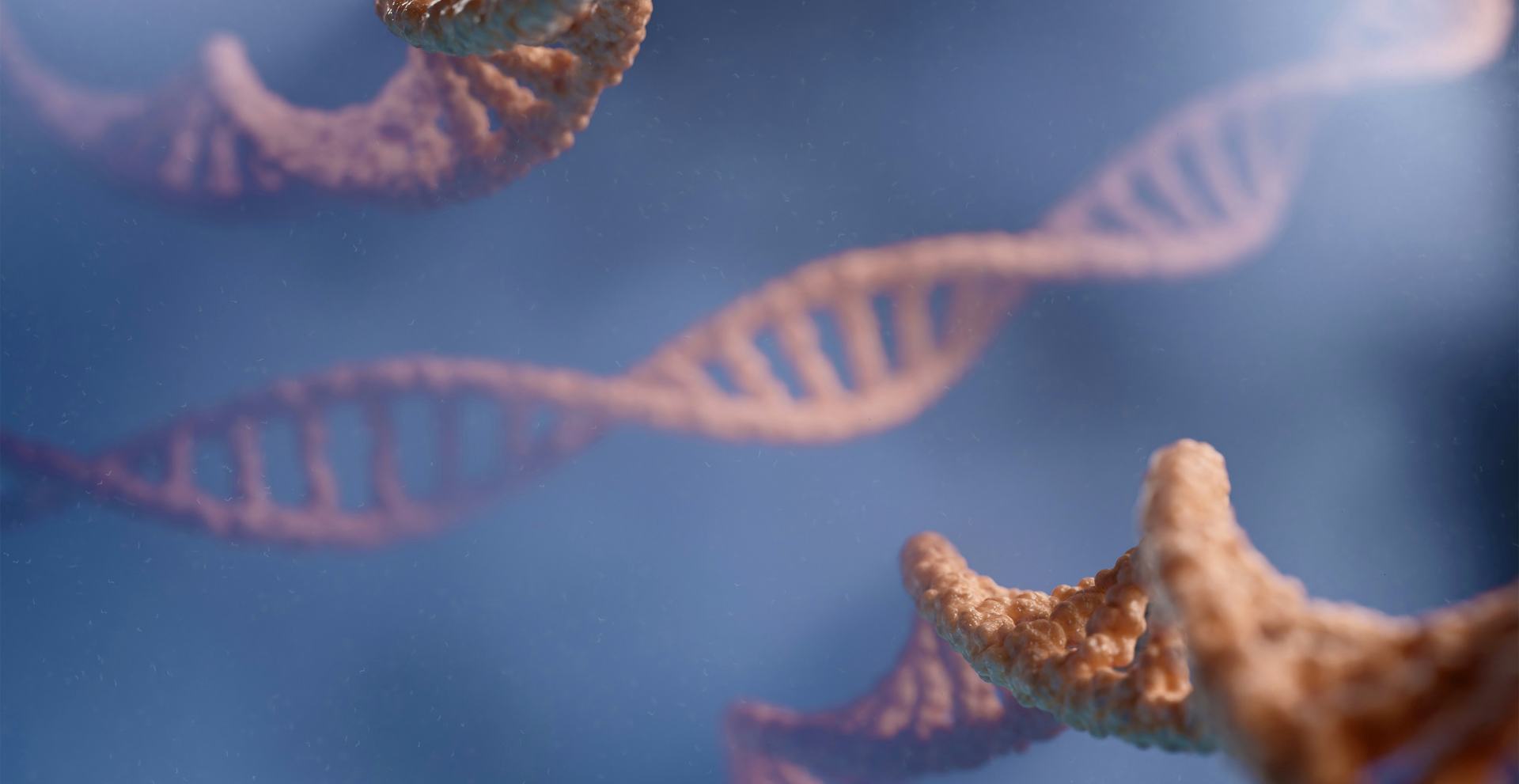What Is Genetic Testing for Mental Health?
Personalized medicine has been a significant development in mental health treatment over recent years. This approach shifts away from the “one-size-fits-all” approach and aims to tailor treatment according to an individual’s unique characteristics, including their genetic makeup.
At Friendswood Psychiatry Clinic, we offer in-house genetic testing to inform treatment for various mental health conditions. In this article, we’ll uncover the science, process, and benefits of genetic testing and address any concerns so you can decide whether this service is right for you.
What Are Genes, and Why Do They Matter?
Every cell in your body contains DNA, which carries the instructions for how your body develops and functions. Segments of DNA are called genes, and each gene provides the instructions to make a specific protein.
Some of these proteins, called enzymes, help break down medications. Others transport neurotransmitters in the brain, such as serotonin or dopamine, which are chemical messengers that play a key role in cognition and mood.
Everyone has the same basic set of genes, but small differences, known as
genetic variations, can impact how those genes function. These differences can mean that the same drug works well for one person but causes side effects or no benefit in another.
How do Genes Affect Mood?
Although genetic testing doesn’t diagnose mental health conditions, researchers have discovered that specific genes may increase the risk of developing disorders like depression, anxiety, and schizophrenia.
These genes are closely linked to neurotransmitters. Some genes provide instructions to make enzymes that build or break down these chemical messengers. Others code for receptors—proteins that receive signals from neurotransmitters and trigger responses in the brain.
Most psychiatric medications work by targeting neurotransmitters. If a person’s genes cause these chemicals to be too active or not active enough, it can change how effective medications are for them. This information is also crucial in determining the best psychiatric treatment.
What Is Metabolism in Mental Health Treatment?
Enzymes are crucial for metabolism, which is the process of breaking down substances and eliminating them from the body.
Enzymes belonging to the CYP family are the most important when it comes to breaking down psychiatric drugs. Depending on your genetics, you might be:
- A poor metabolizer (your body breaks the drug down too slowly, increasing side effects),
- A rapid metabolizer (your body breaks it down too quickly, reducing its effectiveness),
By understanding your
metabolic profile, we can help decide whether certain medications may be ineffective or increase the risk of side effects. This can also help determine suitable dosages.
Benefits of Genetic Testing for Mental Health
Psychiatric medication has historically involved a lot of guesswork. A provider may start a patient on a commonly used antidepressant, only to find that it causes side effects or doesn’t work at all. It’s not uncommon for patients to try several medications over months or even years before finding the right fit.
This
trial-and-error approach can delay healing and increase the emotional burden on patients already struggling with symptoms.
Evidence Supporting Genetic Testing
A large study funded by the U.S. Department of Veterans Affairs found that veterans with major depressive disorder (MDD) were significantly more likely to reach remission when their providers had access to genetic test results. Specifically, the study reported a 28% improvement in remission rates over standard care.
Another study
from the Campbell Family Mental Health Research Institute also highlighted the benefits of genetic testing in real-world depression patients. They found a
31% improvement in response among patients who had used medication that fitted their genetic makeup.
How Genetic Testing Works
At Friendswood Psychiatry Clinic, we use the GeneSight test, one of the most comprehensive and precise tests available. The process is quick, safe, and non-invasive. Here’s what you can expect:
- Sample Collection
You’ll provide a simple cheek swab during your visit—no needles, no pain. - Laboratory Analysis
Your DNA is sent to a certified lab, where it is analyzed for variations in genes. - Personalized Report
The lab sends back a report categorizing medications into three groups:
- Green: medications that may work well with your genes
- Yellow: use with caution
- Red: medications that may cause side effects or be less effective
- Clinical Review
Your provider will review the results with you and use them to help guide your treatment decisions, whether that means starting a new medication or adjusting the dosage of one you're already taking.
Genetic Markers Commonly Tested
Some of the key genes tested include:
- CYP2D6 and CYP2C19: These affect how fast or slow you metabolize many antidepressants, antipsychotics, and stimulants.
- SLC6A4: This gene is related to how serotonin is transported in the brain. This neurotransmitter plays an essential role in regulating mood and is the main target for antidepressants.
- COMT: This gene codes for an enzyme that breaks down dopamine, which is vital for motivation and mood. Dopamine is implicated in the biology of schizophrenia and is the main target for antipsychotics.
Understanding these markers allows providers to predict not just how well a medication may work, but also whether you’re more likely to experience
side effects,
interactions, or a
lack of response.
Who Should Consider Genetic Testing?
While genetic testing is not required for all patients, certain individuals may benefit more than others:
- Patients who have tried multiple psychiatric medications without success
- People who experience intense side effects from medications
- New patients seeking a more tailored, proactive treatment plan
- Individuals with complex or co-occurring mental health conditions
Common Concerns About Genetic Testing
Will this test tell me if I have a mental illness?
No. Genetic testing cannot diagnose mental health conditions or predict with certainty whether you’ll develop one. It’s designed to help your doctor choose the best medication once a diagnosis is already made.
Is my information safe?
Yes. At Friendswood Psychiatry Clinic, all test results are kept confidential, securely stored, and used solely for clinical purposes in accordance with HIPAA guidelines. Your provider will review the results with you personally and address any questions you may have.
Is Genetic Testing Expensive?
The good news is that many insurance plans now cover genetic testing for mental health treatment, particularly for patients who have struggled with medication side effects or treatment resistance. Different plans will cover varying amounts of the cost, and you will still be responsible for paying a deductible or co-pays.
Our administrative team will:
- Verify your insurance benefits
- Explain any potential out-of-pocket costs
- Offer transparent pricing if you choose to self-pay
We aim to make genetic testing accessible and affordable for every patient who can benefit from it.
Next Steps at Friendswood Psychiatry Clinic
If you're interested in learning whether genetic testing could be part of your personalized mental health care plan, we encourage you to schedule a consultation with one of our providers.
You can visit our contact page to request an appointment or learn more about the services we offer.

HELPFUL LINKS
SCHEDULE A CONSULTATION
It's important to know that you are not alone. You can get help with depression today!
WE SUPPORT MENTAL WELLNESS
- Depression
- Anxiety
- ADHD
- OCD
- Adjustment Disorders
- Life Transitions
- Autism Management
- Binge Eating Disorders
- Smoking Cessation







